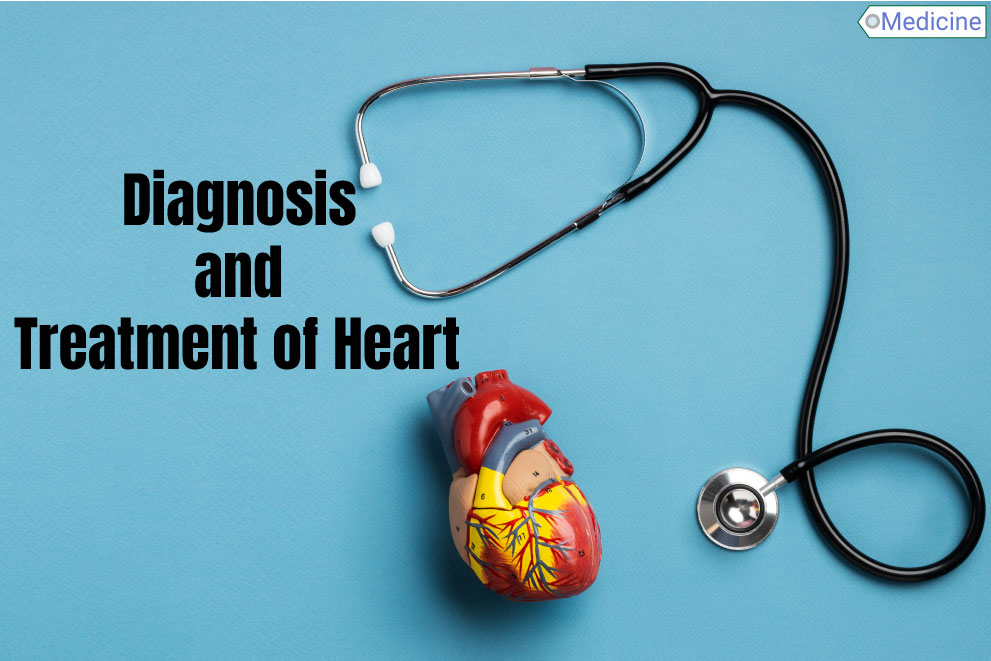Diagnosis and Treatment of Heart

Diagnosis and Treatment of Heart Diseases
The diagnosis and treatment of heart diseases involve a combination of medical evaluations, advanced imaging techniques, and various treatment options to manage cardiovascular conditions effectively.
Diagnosis of Heart Diseases:
- Medical History & Physical Exam – Assessing symptoms, lifestyle, and risk factors.
- Electrocardiogram (ECG/EKG) – Measures the heart’s electrical activity to detect irregularities.
- Echocardiogram – Uses ultrasound to create images of the heart’s structure and function.
- Stress Test – Evaluates heart function under physical exertion.
- Cardiac Catheterization & Angiography – Examines blood flow in coronary arteries.
- Blood Tests – Detects markers of heart disease, such as cholesterol and troponin levels.
Treatment of Heart Diseases:
- Lifestyle Changes – Healthy diet, regular exercise, smoking cessation, and stress management.
- Medications – Includes beta-blockers, statins, anticoagulants, and blood pressure regulators.
- Medical Procedures & Surgeries:
- Angioplasty & Stents – Opens blocked arteries.
- Bypass Surgery (CABG) – Creates new pathways for blood flow.
- Pacemakers & Implantable Devices – Helps regulate heart rhythms.
- Heart Transplant – For severe cases of heart failure.
Early detection and appropriate treatment are crucial in preventing complications and improving heart health. Regular check-ups, a heart-healthy lifestyle, and medical interventions help manage and reduce the risks associated with cardiovascular diseases.





